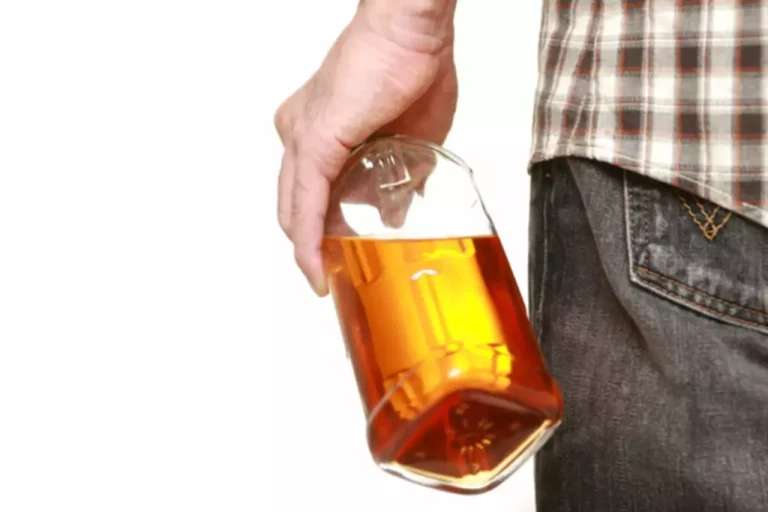
Not only does volunteering help us get out of our heads and inot the present moment. This helps us to see and appreciate the good things in our lives now. There are many guided meditations on different meditation apps or YouTube that are free. This will not only help you calm your mind but also find things to be grateful for you may overlook. Most everyone has heard the question, “Is the glass half empty or half full?
- Gratitude truly is for everyone, but it is so powerful for those struggling through recovery.
- The positive benefits of gratitude for everyone, including individuals in recovery, has long been noted.
- They may believe that gratitude is ignoring or denying the negative aspects of life or being overly optimistic.
- According to the Alcoholics Anonymous Big Book, resentment is the number one offender and can kill those with AUD or SUD.
- It’s fostering a sense of community and support that many participants describe as life-changing.
- The connection and positive emotions this generates can be incredibly healing.
Start Recovery Today
But even deep gratitude tends to fade as we turn to the mundane tasks of daily life. People in recovery through the Twelve Steps are aware that maintaining an “attitude of gratitude” is important for remaining https://ecosoberhouse.com/ sober. Gratitude is like a secret weapon for boosting self-esteem and self-worth. When you regularly acknowledge the good in your life and your own progress, you start to see yourself in a more positive light.

Achieve Sobriety with IOP
The active, regular practice of gratitude increases happiness, quality of life, and other positive emotions. For people in recovery from addiction, gratitude practices can be powerful ways to strengthen sobriety and reduce relapse risk. The act of gratitude can be as simple as making a list of good things that happen and thanking people for what they do to support recovery. In the journey of recovery, incorporating gratitude into daily life can have profound effects on one’s well-being and overall progress. By cultivating a practice of gratitude, individuals in recovery can shift their focus towards the positive aspects of their lives, fostering a sense of appreciation and resilience. This section explores daily gratitude practices and the effect of gratitude on mental health.
Embrace a New Perspective

Gratitude can show others that you do not take your second chance at life for granted. By expressing thankfulness for everything you have in your life, you can shift your mindset from focusing on what you lack to appreciating all the wonderful things you have going for you. Another study looked at participants in Alcoholics Anonymous (AA), all in recovery. Those who practiced more gratitude were more likely to participate in AA, to make the AA promises, and to have good social support. They were also less likely to experience stress and other negative health symptoms. They found that people with a grateful disposition were less likely to relapse and had a better emotional outlook.
Ways to Maintain an Attitude of Gratitude in Addiction Recovery
It can help you divert your attention away from substance use to focus on what fulfills you. It’s easy to become irritable, angry, and impatient when we focus on the worst qualities in others. Instead, focusing on the best qualities can help us maintain a positive attitude, develop patience, and be respectful of others, even when it’s not easy.

Benzodiazepine Addiction Recovery Steps
Incorporating gratitude into daily life helps individuals stay focused on the positive aspects of their relationships and interactions. It encourages them to appreciate the support and encouragement they receive from loved ones, therapists, or support groups. This recognition of gratitude in recovery support enhances feelings of gratitude and deepens the bond with others, creating a network of individuals who can provide ongoing encouragement and understanding. Making an effort to practice gratitude regularly can have an incredibly positive impact on your mental health.
- This recognition of support enhances feelings of gratitude and deepens the bond with others, creating a network of individuals who can provide ongoing encouragement and understanding.
- By focusing on the positive and practicing gratitude, individuals can enhance their well-being, cultivate a positive mindset, and experience growth and healing throughout their recovery journey.
- This appreciation often leads to improved communication, increased empathy, and stronger bonds.
- Take time to look at yourself and your life and be grateful to yourself.
- Throughout each day, be mindful of your interactions and observations of others.
- With this article, we hope to give you a better understanding of how this happens and help you in your recovery.
On those days, try to go through the motions anyway to avoid breaking your new habit. Force yourself to keep up with your gratitude routine, watch your language and try to keep your perspective clear. Often, just by going through the motions, you’ll find yourself feeling grateful by the end of the day. Changing your language can help you focus on the good in the world, in others and in yourself. When you do this, you’ll start to unconsciously and effortlessly practice gratitude throughout the day. When you’re struggling, you can reach for your gratitude journal or reminders to rebalance yourself.

People also viewed
It starts with a mindset shift, and a concerted effort to think more positively. Addiction strips away all the good things in life; health, happiness, contentment … you name it. Taking a moment to think about something good you have now can serve as a reminder of how far you’ve come since your addiction. Remembering the way your life was when you were addicted doesn’t have to drudge up feelings of regret or sadness. Instead, it can improve your gratitude and remind you that the fight to stay sober is worth the effort.
Importance of Gratitude in Addiction Recovery

The truth is, practicing gratitude isn’t always easy, especially when you’re dealing with the rollercoaster of emotions that often come with recovery. Negative thoughts and feelings can be like unwelcome houseguests – they barge in uninvited and overstay their welcome. A study published in the Journal of Positive Psychology found that individuals who practiced gratitude regularly reported lower levels of stress and depression, and higher levels of social support. Another study in the journal Spirituality in Clinical Practice showed that grateful recovering alcoholics had lower levels of depression and stress, and were more likely to stay sober. Affirmations are positive statements that you repeat to reinforce your beliefs and attitudes. You may think that gratitude is difficult to practice, especially when you are facing hardships or difficulties in life.

